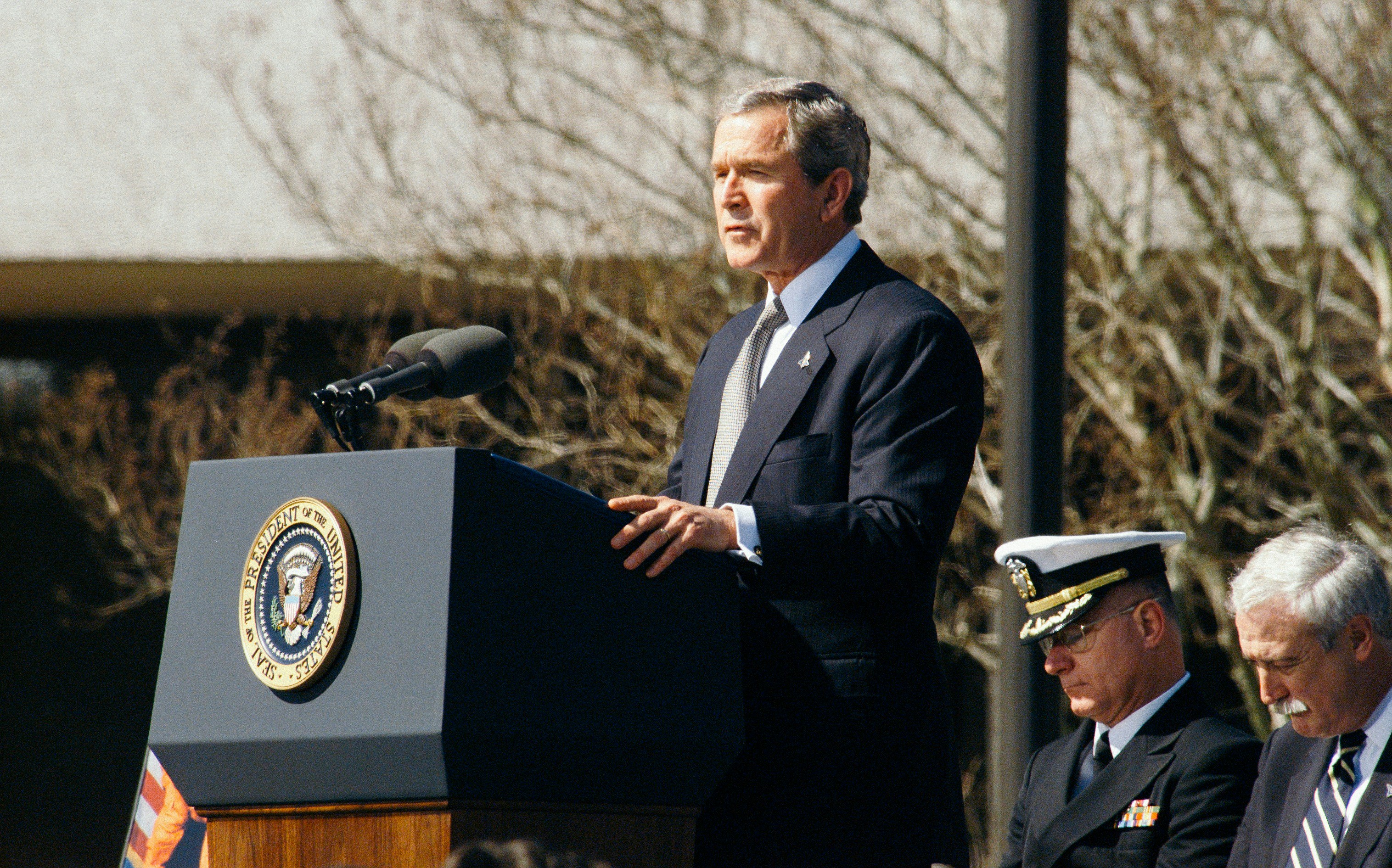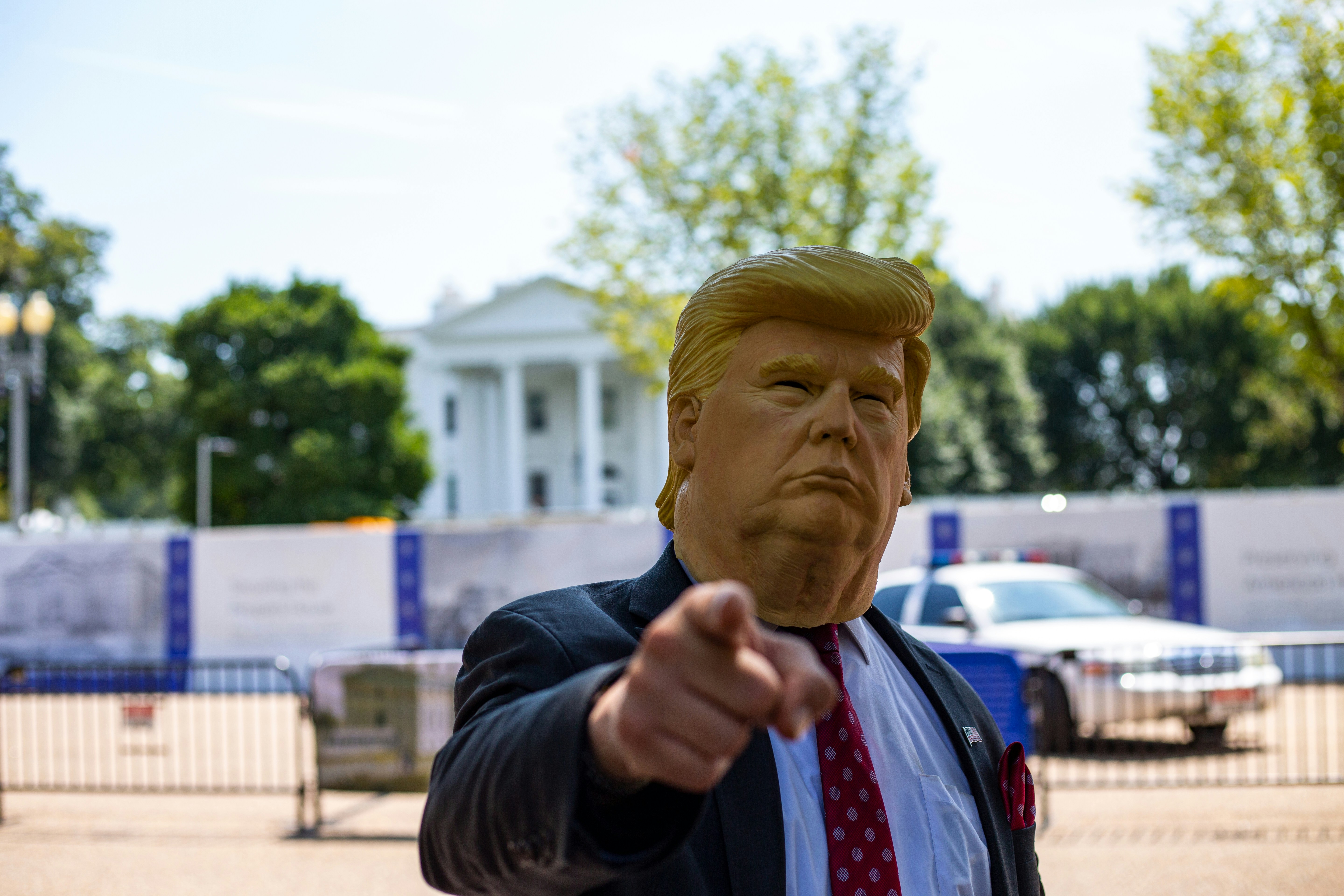Now Reading: Has Donald Trump Garnered Enough Support for the 25th Amendment?
- 01
Has Donald Trump Garnered Enough Support for the 25th Amendment?

Has Donald Trump Garnered Enough Support for the 25th Amendment?
The 25th Amendment Explained
The 25th Amendment to the United States Constitution, ratified in 1967, provides a clear framework for addressing presidential succession and the handling of presidential incapacity. Its primary purpose is to ensure the continuity of governance and to clarify the procedures that should be followed when a president is unable to fulfill the duties of the office. This amendment is crucial in maintaining the stability of the executive branch and ensuring that the government continues to function effectively, especially during crises.
The 25th Amendment comprises four sections, each addressing different aspects of presidential succession and incapacity. The first section confirms that in the event of a president’s death or resignation, the vice president shall assume the presidency. This provision is fundamental as it establishes immediate succession, thereby preventing a power vacuum. The second section allows for the appointment of a new vice president should the office become vacant, reinforcing the stability of the executive leadership.
A significant aspect of the 25th Amendment is outlined in the third and fourth sections, which govern presidential incapacity. These provisions specify that the president can voluntarily relinquish power by notifying Congress, as well as the conditions under which the vice president and a majority of the cabinet can declare the president incapacitated. This scenario is particularly important as it serves as a safeguard against a president who is unable to perform their duties due to physical or mental health issues, enabling a temporary transfer of power.
In conclusion, the 25th Amendment is a vital part of the U.S. constitutional framework, addressing essential procedures for leadership succession and the management of presidential incapacity. Its relevance has become increasingly significant in contemporary political discussions, especially as it relates to the capability of those in power to effectively govern.
Cognitive Concerns: Observations from Prominent Figures
The cognitive capabilities of Donald Trump during his presidency have been the subject of scrutiny among various public figures and analysts. Observations from notable individuals such as California Governor Gavin Newsom and tech entrepreneur Elon Musk have brought to light concerns regarding Trump’s mental acuity and decision-making skills, particularly in moments of crisis. These perceptions highlight the broader dialogue surrounding mental fitness in political leadership.
Governor Gavin Newsom has been particularly vocal, suggesting that the indicators of cognitive decline are evident, especially during Trump’s speeches and press conferences. Newsom’s remarks often emphasize that Trump’s handling of complex issues, such as the COVID-19 pandemic and international relations, appeared to lack the clarity and strategic thinking that one would expect from a leader in his position. Such observations raise questions about Trump’s ability to process information effectively and make sound judgments that affect national and international policies.
Elon Musk, known for his candid nature, has also weighed in on Trump’s cognitive fitness. While Musk tends to focus on innovation and technology, he has expressed his concerns about leadership qualities lacking urgency and comprehension in rapidly evolving scenarios. Musk’s comments suggest a belief that effective governance requires not just cognitive health but also the capacity to adapt to new information and changing dynamics — a trait that, according to some, has diminished over time in Trump’s public appearances.
These insights from public figures form part of a larger conversation regarding the cognitive health of leaders and the implications for governance. Observers highlight specific instances, such as Trump’s comments during debates and public addresses, which may reflect a decline in his cognitive agility. As these discussions continue, they underscore the profound impact of perceived cognitive fitness on public opinion and political stability.
Military Involvement: A Questionable Decision
In recent months, former President Donald Trump’s military involvement during civil unrest, particularly during protests in California, has raised significant concerns. The decision to deploy federal military forces to control protests, which arose in response to social and racial equity movements, has drawn parallels to historical events, notably the January 6th insurrection. This military engagement showcases an approach that some critics argue exacerbated tensions rather than alleviating them.
The context behind Trump’s military decision-making reflects a broader pattern of prioritizing order and control over addressing the underlying issues prompting civil dissent. Historically, past administrations have faced similar dilemmas, weighing the need for national security against the rights of citizens to peacefully assemble. The events surrounding January 6 were particularly potent in highlighting the use of force against demonstrators, where the response to violence by some factions contrasted starkly with the handling of more peaceful protests earlier. Trump’s actions in California, therefore, can be viewed through the lens of heightened scrutiny regarding the appropriate role of military apparatus in domestic affairs.
Public reaction to the use of military power in these contexts has often reflected a deep division in American society. Some individuals believe that such measures are justified in the name of law and order, while others argue that deploying the military against civilians undermines democratic principles and civil liberties. The apprehension surrounding military involvement in civil protests has also been accentuated by media portrayals and grassroots movements advocating for justice. As debates about the appropriateness of such military action continue, the implications for future leadership decisions become increasingly critical.
Consequently, Trump’s military strategies during unrest have sparked discourse on the balance between maintaining order and protecting constitutional rights. Revisiting these events will be essential in shaping public understanding of how such actions may influence discussions around the 25th Amendment and the administration’s approach to crisis management.
Diplomatic Dilemma: The Israel-Iran War and Trump’s Stance
Donald Trump’s approach to foreign policy has undergone significant scrutiny, particularly in the context of heightened tensions between Israel and Iran. Throughout his presidency, Trump often oscillated between aggressive and conciliatory strategies, creating a complex narrative that has left both allies and critics questioning his consistency. Early in his term, Trump took a hardline position against Iran, condemning its nuclear ambitions and supporting Israel’s right to defend itself. This stance culminated in the withdrawal from the Joint Comprehensive Plan of Action (JCPOA), which many viewed as a substantial step towards increasing regional tensions.
However, criticism arose regarding Trump’s contradictory pronouncements, especially when considering his proclaimed commitment to peace. He often articulated a vision of reducing U.S. military involvement in foreign conflicts, emphasizing a desire to prioritize domestic issues over international entanglements. Yet, as tensions escalated with Iran, Trump shifted his rhetoric, suggesting a potential military response. This inconsistency poses questions about the effectiveness and sincerity of his foreign policy philosophy. The implications of being drawn into further military conflict amid calls for diplomacy are profound, indicating a potential departure from his original campaign promises.
As the Israel-Iran situation evolves, Trump’s positioning remains vital. The U.S. stands at a crossroads, where support for Israel might necessitate a more militaristic response to Iranian provocations. Stakeholders must weigh the consequences of deeper involvement, especially considering Trump’s previous claims to foster peace. Balancing diplomacy with defense presents a diplomatic dilemma that encapsulates the complexities of modern geopolitical relations. Ultimately, how Trump reconciles these discordant strategies could shape not only U.S. foreign policy but also the broader landscape of Middle Eastern geopolitics.
Support and Resistance: The Case for the 25th Amendment
The potential invocation of the 25th Amendment concerning former President Donald Trump has generated considerable discourse among political figures and analysts. The 25th Amendment, which addresses presidential succession and disability, allows for the removal of a president deemed incapable of performing the duties of the office. As Trump’s presidency experienced numerous controversies, discussions surrounding his fitness to serve intensified, prompting both support and resistance among lawmakers and political commentators.
Supporters of invoking the 25th Amendment often point to instances during Trump’s tenure where his decisions and behaviors raised questions about his stability and judgment. These supporters argue that the political landscape necessitates a closer evaluation of a president’s mental and emotional fitness, particularly when national security is at stake. Figures within the Democratic Party and some moderate Republicans have publicly expressed their concerns, asserting that a collective stance is vital to ensure the nation is governed effectively and safely.
Conversely, there is significant resistance to the idea of applying the 25th Amendment in Trump’s case. Many Republicans and some far-right activists view the discussions as politically motivated attempts to undermine Trump’s legacy and discredit his voter base. They argue that using the amendment could set a dangerous precedent, opening the door for the 25th to be invoked against future presidents based on partisan disagreements rather than objective assessments of their capabilities. Additionally, the allure of political power can foster a dismissive attitude towards discussions framed as attacks, promoting an environment of polarization rather than bipartisan dialogue.
Ultimately, the questions surrounding the invocation of the 25th Amendment go beyond mere political affiliation; they speak to broader issues regarding presidential accountability and the governance framework in the United States. Whether Trump has garnered enough support for serious discussions on this topic remains to be seen, but the existing divide illustrates the complexities involved in reaching a consensus on such a consequential matter.
Succession Scenarios: The Role of JD Vance and Possible Vice President
The potential invocation of the 25th Amendment raises intriguing scenarios regarding the future leadership of the United States, particularly concerning JD Vance’s possible ascension to the presidency. As an influential figure within the Republican Party, Vance’s leadership could significantly shape the political landscape. Should the 25th Amendment be invoked, the vacancy in the presidency would necessitate a deliberate selection of a new vice president and subsequently a presidential candidate, thereby drawing attention to the implications of such a transition.
JD Vance, currently a prominent Ohio senator and a staunch supporter of former President Donald Trump, has demonstrated considerable political appeal. His rise to the office would signify a continuation of Trump’s political ideology, appealing to the same base of supporters. Many believe that Vance’s policies resonate deeply with those looking for a strong, populist approach in governance. If he were to assume the presidency, the implications for American politics could be profound, likely galvanizing the party’s base while also challenging existing bipartisan dynamics.
In contemplating potential vice-presidential candidates, figures like Ron DeSantis emerge as strong contenders. DeSantis, the Governor of Florida, has garnered attention for his public health policies during the pandemic and appeals to the conservative electorate. His selection alongside Vance could solidify a formidable Republican leadership team, reinforcing a unified front in the party. These developments might significantly influence the upcoming elections, thereby shaping strategic decisions surrounding party unity and electoral tactics.
As the political environment unfolds, the ramifications of invoking the 25th Amendment and the subsequent leadership changes remain pivotal in determining the future trajectory of American politics. The combination of Vance’s presidential aspirations and a strategically chosen vice-presidential partner may not only secure immediate party support but also redefine the GOP’s approach in the upcoming electoral cycles.
2028 Presidential Election: The Rise of Gavin Newsom
As the United States approaches the 2028 presidential election, the political landscape is becoming increasingly dynamic, with potential candidates emerging from various factions. One notable figure who has gained considerable attention is Gavin Newsom, the Governor of California. His policies and political acumen position him as a potentially formidable frontrunner in the upcoming election. The discourse surrounding Donald Trump’s leadership and the implications of invoking the 25th Amendment may further shape the perceptions and strategies of politicians like Newsom as they navigate the evolving political environment.
Gavin Newsom’s progressive stance on key issues such as climate change, healthcare, and social justice resonates with a significant portion of the electorate, particularly younger voters who prioritize these matters. His tenure as governor has been marked by bold initiatives that emphasize innovation and inclusivity, which align with the increasing demand for transformative leadership in American politics. As the nation reflects on the potential ramifications of Trump’s presidency, Newsom’s approach could appeal to those seeking a shift towards more progressive ideologies.
Furthermore, the political dialogue surrounding the 25th Amendment may serve as a critical backdrop to Newsom’s campaign. As the public scrutinizes the stability and effectiveness of the current administration, a compelling narrative can be constructed around Newsom’s leadership qualities in contrast to the controversies surrounding Trump. If discussions about the 25th Amendment continue to gain traction, it may solidify the need for a fresh perspective in the White House, bolstering Newsom’s chances as a relevant candidate in 2028.
In essence, as the political climate evolves, Gavin Newsom’s prospects for the 2028 presidential election appear to be on the rise. The discussions ignited by Trump’s administration and the potential implementation of the 25th Amendment might pave the way for a new generation of leaders who can address the complex issues facing the nation with clarity and conviction.
Public Perception: Polling Data and Analysis
Public perception of Donald Trump’s presidency and cognitive abilities significantly impacts his political future and the potential application of the 25th Amendment. Various polls conducted over time have revealed evolving sentiments among the American electorate, shedding light on how individuals perceive his effectiveness as a leader. In recent surveys, a notable percentage of respondents expressed concerns regarding Trump’s cognitive capabilities, with questions surrounding his decision-making processes. For instance, a poll by ABC News from early 2023 indicated that approximately 58% of voters believed he was not in command of his mental faculties, a sentiment echoed in other national surveys. This widespread concern may have implications for his leadership legitimacy.
Support for the 25th Amendment, which allows for the removal of a sitting president deemed incapable of fulfilling their duties, has also seen fluctuations in public approval. According to a recent Gallup poll, around 48% of Americans supported the idea of invoking the 25th Amendment in Trump’s case, a significant figure that illustrates the societal unease toward his presidency. This perception does not just reflect personal sentiments; it resonates with a broader fear regarding national leadership during turbulent times. The Democrats frequently leverage these concerns, highlighting Trump’s age and behavior as critical factors in their narratives against him.
Furthermore, trends in polling data suggest a partisan divide in how the 25th Amendment is perceived. While Democrats generally express higher support for invoking the Amendment, Republicans remain largely resistant, focusing instead on Trump’s accomplishments and the challenges facing his administration. As we look towards the future, these perceptions may not only shape Trump’s immediate political viability but also influence potential successors, with key figures entering or exiting the political arena based on the prevailing public sentiment surrounding his presidency.
Conclusion: The Path Forward for America
The discussion surrounding the 25th Amendment and its potential application to Donald Trump’s presidency has highlighted crucial issues related to democratic integrity and governance in the United States. Throughout the analysis, we have examined the constitutional provisions that allow for the removal of a sitting president deemed unable to fulfill their duties. This mechanism serves not only as a safeguard for the nation but also as a critical tool for ensuring that leadership remains responsive and accountable to the electorate.
The political landscape remains volatile, with significant polarization among party lines and public opinion. As the nation navigates the implications of Trump’s tenure, it is essential to recognize the broader context and challenges facing future leadership in America. The principles enshrined in the 25th Amendment remind us of the importance of possessing capable and stable leadership at the highest levels of government, especially during times of crisis or uncertainty.
Looking ahead, the implications of leveraging the 25th Amendment extend beyond Trump’s presidency. They invite reflection on the standards of leadership and the expectations of those in power. As we consider the future, it is imperative to engage in an informed and constructive dialogue about the qualities necessary for effective governance. This includes the recognition of mental and physical fitness, alongside the ethical standards expected of leaders in a democratic society.
Ultimately, the application of the 25th Amendment serves as a reminder that the ultimate authority resides with the people, who deserve leaders capable of managing the complexities of their roles. By safeguarding democratic processes and promoting accountability, America can foster a political environment that not only withstands adversity but also thrives in the face of challenges, paving the way for a more unified and resilient future.
















